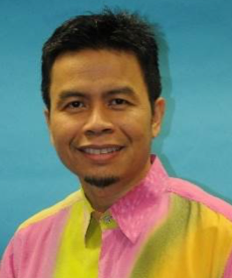
Dr. Salleh b. Zakaria
BDS (Malaya), MPH (OH) (Malaya)
Dr Salleh b. Zakaria is currently the Deputy Director for Oral Health Technology Section in the Oral Health Division, Ministry of Health Malaysia. He obtained his dental degree from University of Malaya, Kuala Lumpur in 1999 and his Master of Public Health (Oral Health) from the same university in 2008. Currently, he is a committee member of the Malaysian Association of Dental Public Health Specialists and a member of the International Association for Dental Research (Malaysian section). He is a member of the Technical Advisory Committee for Clinical Practice Guidelines (CPG) in the Ministry of Health and has contributed to the development of many CPGs for oral health programmes in Malaysia. He has also been a clinical examiner for numerous national oral health surveys in the country. He was the Benchmark Examiner for Dental Caries in the National Oral Health Survey of Preschool Children in 2015 and the Gold Standard Examiner for Dental Caries in the NHMS 2017: School-based Oral Health Survey. He was the principal author for Chapter 7: Periodontal Status and Treatment Need in the National Oral Health Survey of Adults 2010 (NOHSA 2010) report. He is also a working group member for a number of policy documents for oral health programmes in Malaysia.
USE OF ICDAS IN MOH
The current understanding of dynamic nature of the dental caries process showed lesion progression can be arrested at any stage of the process. This concept is particularly important for early caries lesions because they may self-arrest as part of the natural history of the disease or become arrested due to changes in the local environment. The dental caries pattern has changed from cavitated lesions to non-cavitated lesions especially in urban areas in this country. Considering the low progression rates of caries lesions and the aim of healthcare professionals to prevent dental caries, it has become more important to record and manage not only cavitated lesions but also early caries lesions. Controlling the caries process prior to restoration will break the cycle of re-restoration which may lead to larger restorations. In doing so, the cost and complexity of restorative treatments can be reduced. At present, dental caries in Malaysia is recorded using the DMFT/X index whereby only cavitated lesions extending into dentine are recorded. The aim of this presentation is to share the use of the International Caries Detection and Assessment System (ICDAS) to strengthen the detection and management of early caries lesions in school dental services in Malaysia.